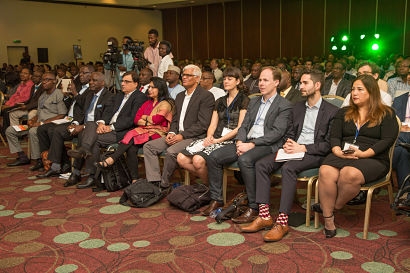
The joint analysis found that developing off-grid alternatives to complement the grid could create a $9.2 billion opportunity for minigrids and solar home systems, saving an estimated $4.4 billion per year for Nigerian homes and businesses.
The findings were discussed at the five-day ‘Upscaling Minigrids for Low Cost and Timely Access to Electricity Services’ summit, hosted by the Nigerian Rural Electrification Agency (REA) in conjunction with the World Bank Energy Sector Management Assistance Program (ESMAP), Climate Investment Funds (CIF), and UK Department for International Development (DFID).
The high-level forum was designed to push action on scaling up minigrids to help countries reach universal energy access by 2030, and was the fourth in a series of events on minigrids organised by the global community in the past two years.
This is the first time this event was held in West Africa and was an indication of the commitment of the Federal Government of Nigeria to supporting investment in off-grid electrification initiatives and the investment opportunities in Nigeria for the development of minigrids and roll out of solar home systems which have a combined potential market of $9.2 billion annually.
Developing off-grid solutions to scale and commercial viability in Nigeria has the potential to unlock a large market opportunity in sub-Saharan Africa, across 350 million people in countries with smaller demand and/or less-robust economies. At the event it was clear that many stakeholders agree Nigeria is well positioned to not only address market barriers, but also to showcase to other nations that minigrids are commercially viable.
The event brought together more than 600 global participants from over 50 countries which included country governments, global organisations, the private sector, academia, NGOs, media, and others to discuss ways to facilitate investment in the sector as well as accelerate the deployment of minigrid systems. Its aim is to interlock with existing minigrids and upscale initiatives globally as well as ongoing activities in Nigeria.
The summit ended with a site visit to the 37.8 kW Bisanti solar minigrid, constructed by GVE Projects Limited in collaboration with the Bank of Industry (BOI), United Nations Development Program (UNDP), and Institute of Electrical Electronics Engineers (IEEE) located in Katcha Local Government Area of Niger State, Nigeria.
“I see only opportunities in Nigeria and not challenges, and policies have been developed to help entrepreneurs fast track energy access for underserved populations” said Babatunde Raji Fashola SAN, Honourable Minister of Power, Works and Housing, also commending the instrumental partnership of the World Bank in developing the power sector and the Rural Electrification Agency for developing data to help private developers reach the communities they need.
Damilola Ogunbiyi, Managing Director, Nigerian Rural Electrification Agency, added that the aim of the Rural Electrification Agency is to roll out 10,000 minigrids rapidly to support underserved communities in Nigeria and that, with the current regulatory landscape, Nigeria is the best market to develop minigrids.
Currently, 80 million Nigerians lack access to electricity while millions more suffer from unreliable service. The World Bank and the Government of Nigeria are working together to make mini grids a viable solution to bridge the electrification gap in the country.
Image: The ‘Upscaling Minigrids for Low Cost and Timely Access to Electricity Services’ summit (Photo: Rocky Mountain Institute, RMI)
For additional information:

